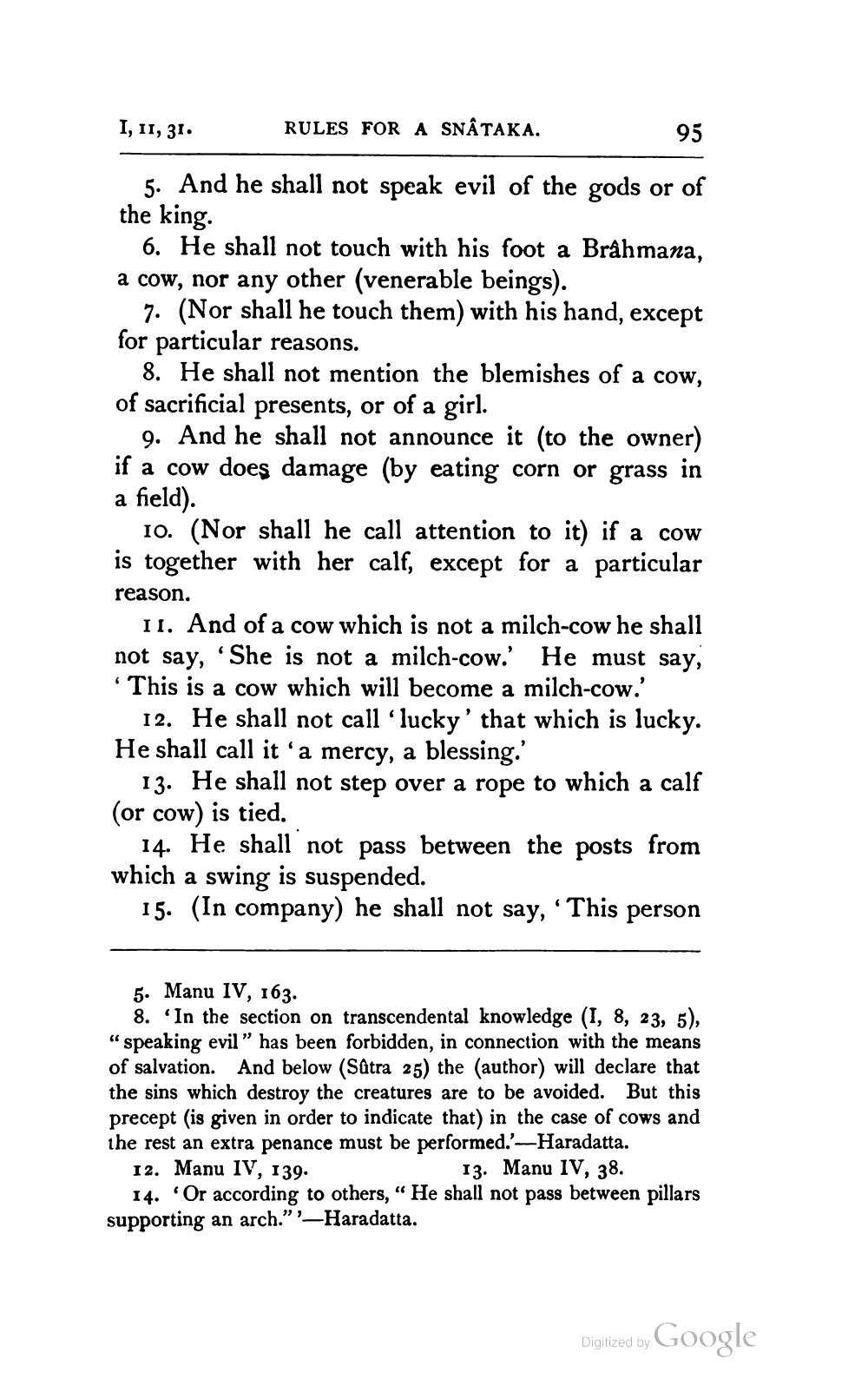________________
I, 11, 31.
RULES FOR A SNÂTAKA.
95
5. And he shall not speak evil of the gods or of the king.
6. He shall not touch with his foot a Brahmana, a cow, nor any other (venerable beings).
7. (Nor shall he touch them) with his hand, except for particular reasons.
8. He shall not mention the blemishes of a cow, of sacrificial presents, or of a girl.
9. And he shall not announce it (to the owner) if a cow does damage (by eating corn or grass in a field).
10. (Nor shall he call attention to it) if a cow is together with her calf, except for a particular reason.
11. And of a cow which is not a milch-cow he shall not say, 'She is not a milch-cow.' He must say, * This is a cow which will become a milch-cow.'
12. He shall not call “lucky' that which is lucky. He shall call it ‘a mercy, a blessing.'
13. He shall not step over a rope to which a calf (or cow) is tied.
14. He shall not pass between the posts from which a swing is suspended.
15. (In company) he shall not say, 'This person
5. Manu IV, 163.
8. In the section on transcendental knowledge (I, 8, 23, 5), “speaking evil” has been forbidden, in connection with the means of salvation. And below (Sätra 25) the (author) will declare that the sins which destroy the creatures are to be avoided. But this precept (is given in order to indicate that) in the case of cows and the rest an extra penance must be performed.'--Haradatta. 12. Manu IV, 139.
13. Manu IV, 38. 14. 'Or according to others, “He shall not pass between pillars supporting an arch." -Haradatta.
Digitized by Google




